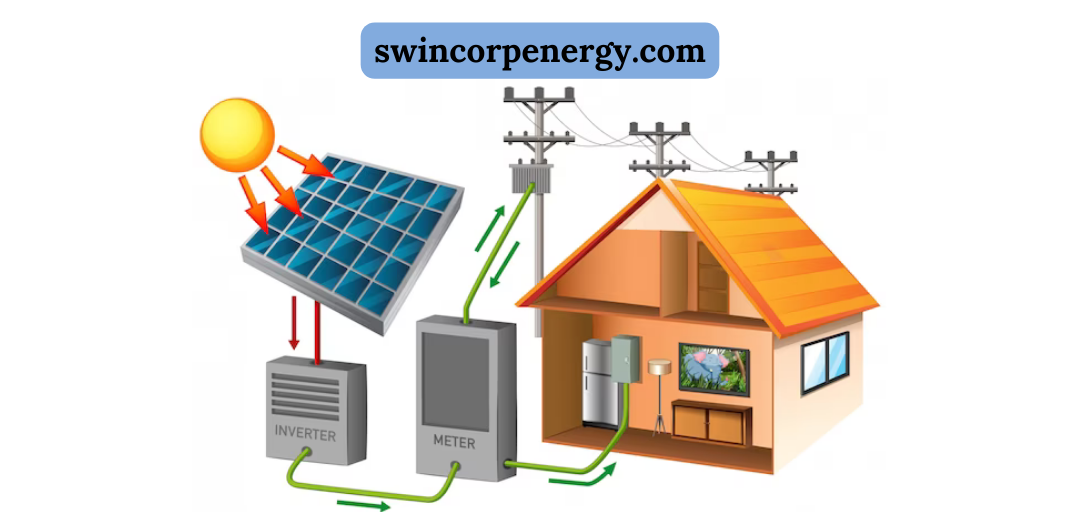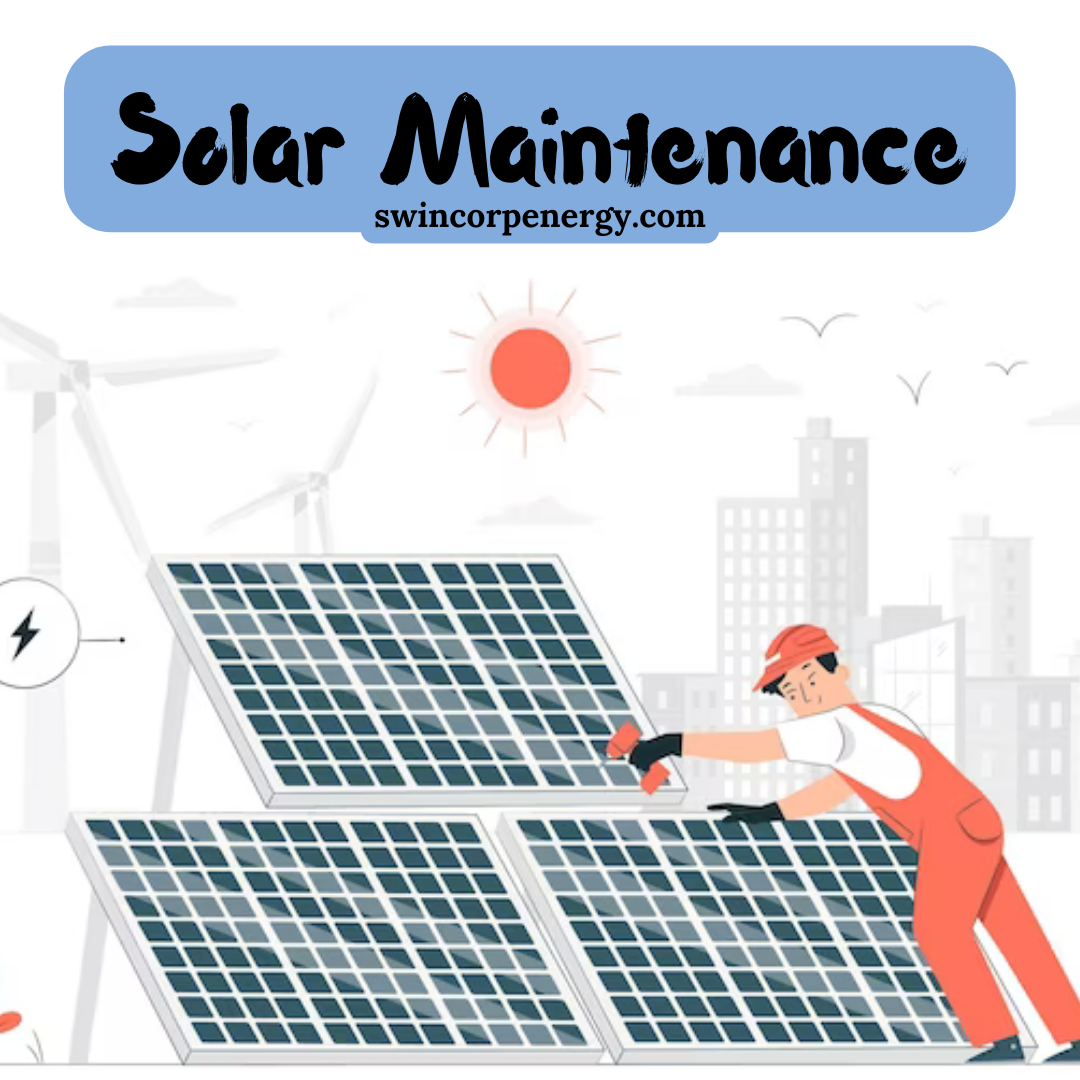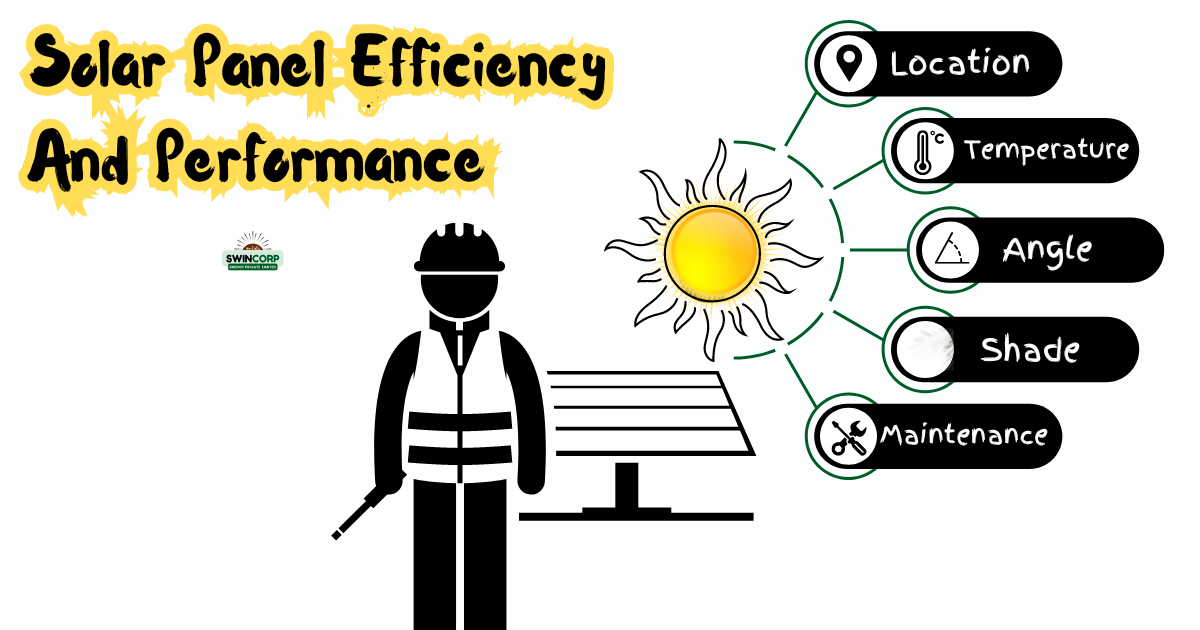Rooftop Solar Panels for Home
Rooftop Solar Panels for Home, Before moving forward lets see why we should install solar for our energy needs. Solar panels are a great way to reduce your energy bills and help the environment.
They work by converting sunlight into electricity, which can be used to power your home. If you’re thinking about installing rooftop solar panels, this guide will walk you through the process.
In this article, we will discuss the following topics one after one :
The benefits of rooftop solar panels
How to determine if your roof is suitable for solar panels
The different types of solar panels available
The best Rooftop Solar Panel Companies
The cost of installing rooftop solar panels
The government incentives available for solar panels
The steps involved in installing rooftop solar panels
Maintenance and Care
Case Studies and Success Stories

1. Benefits of rooftop solar panels:
- Reduce your reliance on fossil fuels: Solar panels can help you reduce your reliance on fossil fuels, which are a major source of pollution.
- Save money on your energy bills: Solar panels can help you save money on your energy bills, especially if you live in an area with high electricity rates.
- Increase your property value: Solar panels can increase the value of your property.
- Make your home more energy-efficient: Solar panels can help you make your home more energy-efficient, which can lead to lower energy bills and a more comfortable home.
2. How to determine if your roof is suitable for solar panels:
- The roof must be facing south or south-east.
- The roof must have enough space for the solar panels.
- The roof must be in good condition and free of leaks.
- The roof must be able to support the weight of the solar panels.
3. Different types of solar panels:
- Monocrystalline solar panels: These are the most efficient type of solar panel, but they are also the most expensive.
- Polycrystalline solar panels: These are less efficient than monocrystalline solar panels, but they are also less expensive.
- Thin-film solar panels: These are the least efficient type of solar panel, but they are also the most lightweight and flexible.
4. The best Rooftop Solar Panel Companies
- Tata Solar
- Vikram Solar
- Loom Solar
- Microtek Solar
- Exide Solar
- Waaree Solar
- Fourth Partner Energy
- CleanMax Solar
- SB Energy
- RelyOn Solar
These companies are all well-established and have a good reputation. They offer a variety of solar panels at different price points, so you can find the right one for your needs.
It is important to get quotes from multiple solar installers before making a decision. This will help you to get the best possible price for your solar panels and installation.
5. Cost of installing rooftop solar panels for home:
- The cost of installing rooftop solar panels varies depending on the size of the system, the type of solar panels, and the labor costs in your area.
- However, in general, you can expect to pay around ₹50,000 for a 1kW rooftop solar system.
6. Government incentives available for solar panels: There are a number of government incentives available for solar panels, such as tax credits and rebates. These incentives can help to offset the cost of installing solar panels.
- Central Financial Assistance (CFA): The central government provides a CFA of up to 30% of the cost of installing rooftop solar panels for residential, institutional, and social sector buildings in general category states and union territories. For special category states, the CFA is up to 70%.
- Net metering: Net metering is a billing mechanism that allows solar power users to export excess solar electricity to the grid and get credit for it. This can help to offset the cost of your electricity bill.
- Generation-based incentive (GBI): The GBI is a payment that solar power generators receive for every unit of electricity they generate. The GBI is designed to encourage the development of solar power projects.
- Accelerated Depreciation: Solar power projects can avail accelerated depreciation of 40% in the first year. This means that you can deduct 40% of the cost of the project from your taxable income in the first year.
- Tax benefits: There are also a number of tax benefits available for solar power projects, such as tax exemption on import duty and excise duty.
To avail these incentives, you will need to apply to the Ministry of New and Renewable Energy (MNRE).
The MNRE has a number of schemes and programs that offer financial assistance and other incentives for solar power projects.
Here are some of the specific schemes and programs offered by the MNRE:
- Solar Rooftop Program: This program provides financial assistance to individuals and organizations for installing rooftop solar panels. The maximum amount of assistance is ₹14,588/kW for a system capacity of up to 3 kW.
- Grameen Solar Electrification Program: This program provides financial assistance to rural households for installing rooftop solar panels. The maximum amount of assistance is ₹30,000/household.
7. Steps involved in installing rooftop solar panels:
- Get quotes from solar installers.
- Choose a solar installer.
- Sign a contract with the solar installer.
- The solar installer will install the solar panels on your roof.
- The solar installer will connect the solar panels to your electrical system.
- You will start generating solar power!
Here is the step-by-step process of installing rooftop solar panels:
- Site assessment: The first step is to have a solar installer assess your roof to determine if it is suitable for solar panels. They will look at the orientation, slope, and shading of your roof, as well as the condition of your roof.
- Design and permitting: Once the installer has assessed your roof, they will design a solar panel system that meets your needs. They will also help you get the necessary permits.
- Installation: The installation of solar panels typically takes one to two days. The installers will install the mounting system, the solar panels, and the electrical wiring.
- Inspection and activation: Once the solar panels are installed, they will be inspected by a qualified electrician. Once the inspection is complete, the solar panels will be activated and you will start generating solar power.
8. Maintenance and Care: Solar panels require very little maintenance. The most important thing is to keep them clean. Dirt, dust, and debris can reduce the amount of sunlight that the panels can absorb, which can lead to a loss of efficiency. You can clean your solar panels yourself with a soft cloth and water. If the rooftop solar panels for home are very dirty, you can use a mild soap solution. Avoid using harsh chemicals or abrasive materials, as these can damage the panels.
Here are some other tips for ensuring the longevity and efficiency of your solar system:
- Inspect your solar panels regularly for signs of damage: This includes checking for cracks, dents, or missing or loose screws.
- Make sure that your solar panels are properly mounted: The mounting system should be strong enough to support the weight of the panels and withstand the wind and snow loads in your area.
- Have your solar system inspected by a qualified professional every few years. This will help to identify any potential problems early on.

9. Case Studies and Success Stories:
- Bhusari Cold Storage: This is a cold storage facility in Begusarai, Bihar. The facility has a rooftop solar power system with a capacity of 100 kW. The system generates enough electricity to meet the facility’s annual electricity demand. This has helped Bhusari Cold Storage to save ₹15 Lakhs (US$20,000) on its electricity bill every year.
- Indira Paryavaran Bhawan: This is the new office building for the Ministry of Environment and Forest (MoEF) in New Delhi. The building has a rooftop solar power system with a capacity of 1 MW. The system generates enough electricity to meet the building’s annual electricity demand. This has helped the MoEF to reduce its carbon emissions by 70%.
- Sri Aurobindo Ashram: This is a spiritual and educational institution in Pondicherry, Tamil Nadu. The Ashram has a rooftop solar power system with a capacity of 1.2 MW. The system generates enough electricity to meet the Ashram’s annual electricity demand. This has helped Sri Aurobindo Ashram to save ₹20 Lakhs (US$25,000) on its electricity bill every year.
Conclusion:
Rooftop solar panels for home are a great way to reduce your reliance on fossil fuels, save money on your energy bills, and increase the value of your property. If you’re considering installing rooftop solar panels for your home, Hope! This guide has provided you with the information you need to get started.
Keywords: rooftop solar panels for home, solar energy, home solar, solar panels for home, solar panel installation, solar panel cost, solar panel incentives, solar panel companies in India




The Rise of Wind Energy in India - swincorp
[…] Best Rooftop Solar Panels For Home […]
Why Nuclear Energy Is Not as Widely Used as You Think - swincorp
[…] Best Rooftop Solar Panels For Home […]
G20 Summit 2023: A Turning Point for the Global Economy - swincorp
[…] Best Rooftop Solar Panels For Home […]
JSW Energy Share Price: What to Expect in 2023 - swincorp
[…] Best Rooftop Solar Panels For Home […]
A Guide to Solar Inverters - Swincorp Energy
[…] Best Rooftop Solar Panels For Home […]
Advantages of Geothermal Energy - Swincorp Energy
[…] Best Rooftop Solar Panels For Home […]
Disadvantages of Hydropower | Swincorp Energy - Swincorp Energy
[…] Best Rooftop Solar Panels For Home […]
Solar Panel Manufacturing: Process, Production Stages - Swincorp Energy
[…] Best Rooftop Solar Panels For Home […]
Solar Panel Manufacturing : Process, Production Stages - Swincorp Energy
[…] Best Rooftop Solar Panels For Home […]
India's Largest Hydropower Plant : Koyna Hydroelectric Project - Swincorp Energy
[…] Best Rooftop Solar Panels For Home […]
Maruti Brezza CNG: Mileage, Review, Features - Swincorp Energy
[…] Best Rooftop Solar Panels For Home […]
Top 5 Best Solar Lights for Your Home | Swincorp Energy - Swincorp Energy
[…] Best Rooftop Solar Panels For Home […]
Tata Punch EV: Best Electric SUV under 15 Lakhs - Swincorp Energy
[…] Best Rooftop Solar Panels For Home […]